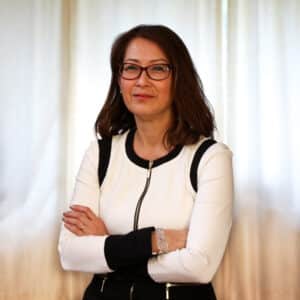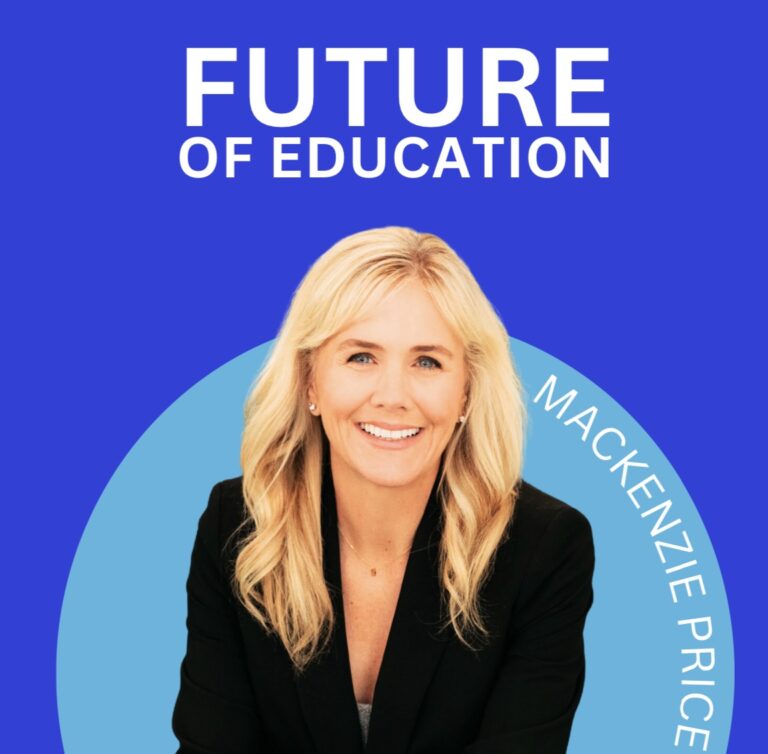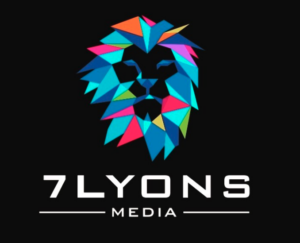Helping Students with Dyslexia — Dr. Coral Hoh // Dysolve
- Part 1Dispelling Dyslexia Myths — Dr. Coral Hoh // Dysolve
- Part 2 Helping Students with Dyslexia — Dr. Coral Hoh // Dysolve
Show Notes
-
01:45Helping students with dyslexia using AI technologyIdentifying the root cause of the reading difficulty is crucial in assisting students with dyslexia. Through an online program like Dysolve, the AI maps and reads the brain of the affected individual to generate an evaluation report pinpointing specific problem areas and their depth.
-
02:58The applicability of the Dysolve programDysolves program is suitable for children aged six and above, and provides information on how a particular childs brain works. Its plug and play, requiring no orientation or parental training, and simply requires the child to log in three to five days of the week for 15 to 30 minutes.
-
04:25Dysolve AIs gamification and individualized learning approachUnlike other educational programs, Dysolve AI creates unique games during sessions based on the child's needs, all designed to analyze and address the child's processing difficulties. This individualized, AI-driven approach to education offers scalability without significant cost implications.
-
07:26The benefits of using AI for dyslexia assessment and interventionDysolve AI continues evaluating throughout the program without additional cost, eliminating waitlists and limited one-time evaluations at schools now. AI allows continuous personalized assessment and intervention, addressing individual needs more comprehensively.
-
09:15Brain retraining for dyslexia correctionDysolve focuses on retraining the brain, addressing fundamental language processing difficulties. When the processes are corrected, children gain reading and spelling skills, allowing them to function similarly to their peers and positively impacting their quality of life.
-
11:07Timeline for seeing results with Dysolves programThe brain retraining process requires consistent practice for noticeable changes. Typically, within four to six months of regular weekly practice, improvements in spelling are observed, with significant progress within a year, based on the child's dedication to the program.
-
13:35Dysolves effectiveness for younger vs. older childrenFor children at the kindergarten and first grade level, correction can happen during evaluation due to its systematic nature. Older students have more activities competing for their time and attention, so parents must employ a tough love strategy to ensure they course correct early for a productive future.
-
15:15The response of schools to Dysolves AI based learning programThe response from schools varies with some being open-minded, supportive, and participating in Dysolves clinical trials. However, despite the programs design not to impact the schools curriculum and the minimal supervision required, some schools are resistant to the program.
-
16:34Observable changes in students after DysolveWithin four to six months of consistent engagement, noticeable changes occur in children undergoing the program. Their mood improves, theyre more receptive to learning, and willing to study for tests due to efficient processing.
Quotes
-
"Unlike other other educational programs where the games are prebuilt, Dysolve AI builds a game in real-time during the session with a child based on data and decisions about what the child needs to do at that point." - Dr. Coral Hoh
-
"With AI, you never have to stop evaluating the child until the whole program is done because it doesn't cost more for the system to keep evaluating. Unlike what's happening in schools now." - Dr. Coral Hoh
-
"For young children in kindergarten or first-grade, Dysolve AI's systematic evaluation process allows for corrective effects to happen during the evaluation itself. " - Dr. Coral Hoh
-
"When a childs been doing Dysolve for four to six months, in one week, everybody notices changes. The mood, receptiveness to learning, willingness to study for a test the whole person changes when processing is efficient." - Dr. Coral Hoh
- Part 1Dispelling Dyslexia Myths — Dr. Coral Hoh // Dysolve
- Part 2 Helping Students with Dyslexia — Dr. Coral Hoh // Dysolve
Up Next:
-
Part 1Dispelling Dyslexia Myths — Dr. Coral Hoh // Dysolve
Dr. Coral Hoh, Co-Founder and Clinical Linguist at Dysolve, delves into dyslexia and student support. Dyslexia is commonly perceived as an uncorrectable, lifelong condition that individuals simply need to cope with. Yet, the concept of neuroplasticity and brain reorganization challenge this notion as breakthrough interventions like Dysolve’s continue to enable students to overcome their processing difficulties. Today, Dr. Coral discusses dispelling dyslexia myths.
Play Podcast -
Part 2Helping Students with Dyslexia — Dr. Coral Hoh // Dysolve
Dr. Coral Hoh, Co-Founder and Clinical Linguist at Dysolve, delves into dyslexia and student support. Enhancing support for students with dyslexia involves rethinking evaluation methods and embracing AI's continuous assessment capabilities. Unlike traditional evaluations in schools, which are often labor-intensive, time-consuming, and serve only a fraction of students, AI offers ongoing, personalized evaluations without limitations. Today, Dr. Coral discusses how to help students with dyslexia.




